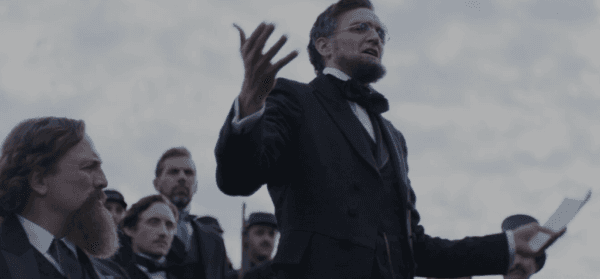Recently, a rather pernicious piece of disinformation has gained Internet traction falsely claiming Abraham Lincoln had owned slaves. He didn’t and anyone who suggests otherwise should lose all credibility. While the degree of Lincoln’s anti-slavery beliefs evolved and hardened during his public life, he always found chattel slavery morally reprehensible.

Graham Sibley (R) as Abraham Lincoln in History Channel docuseries "Abraham Lincoln." History Channel




